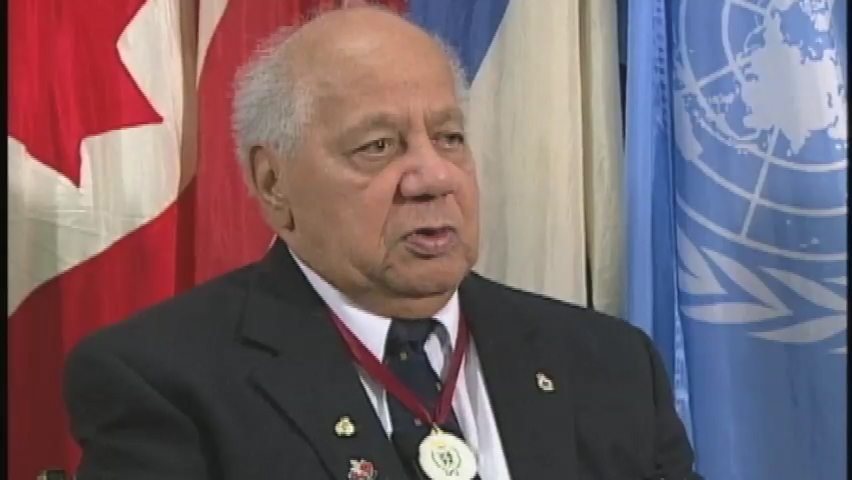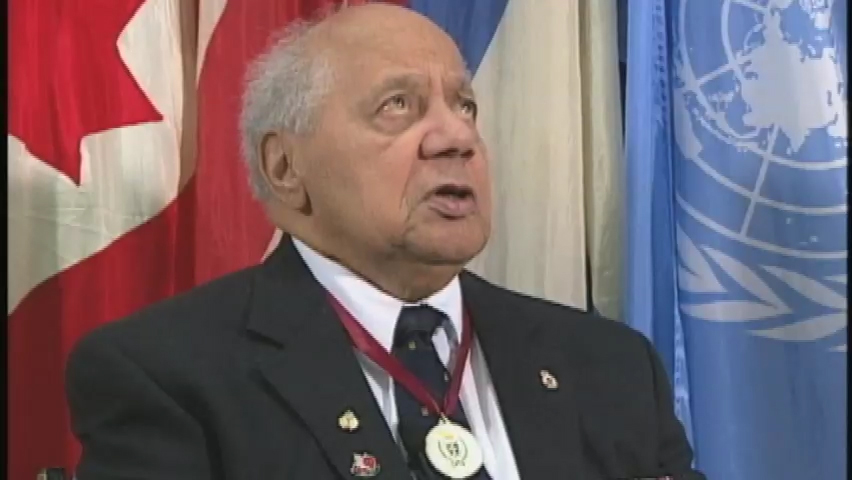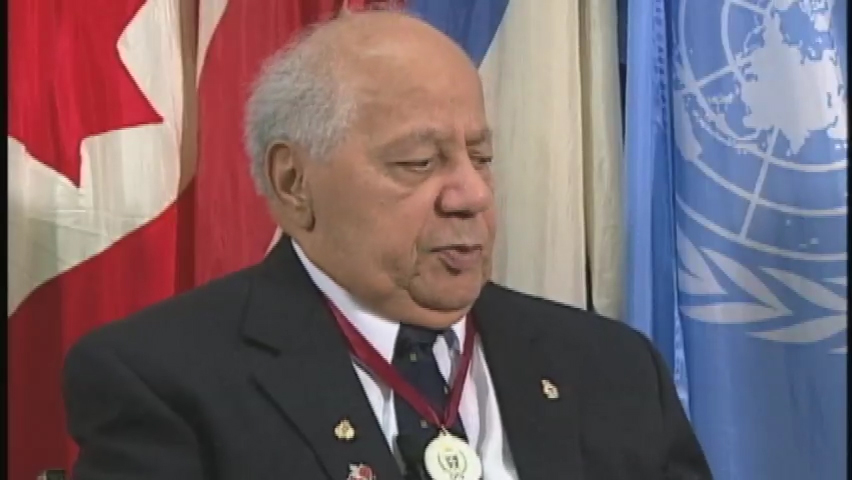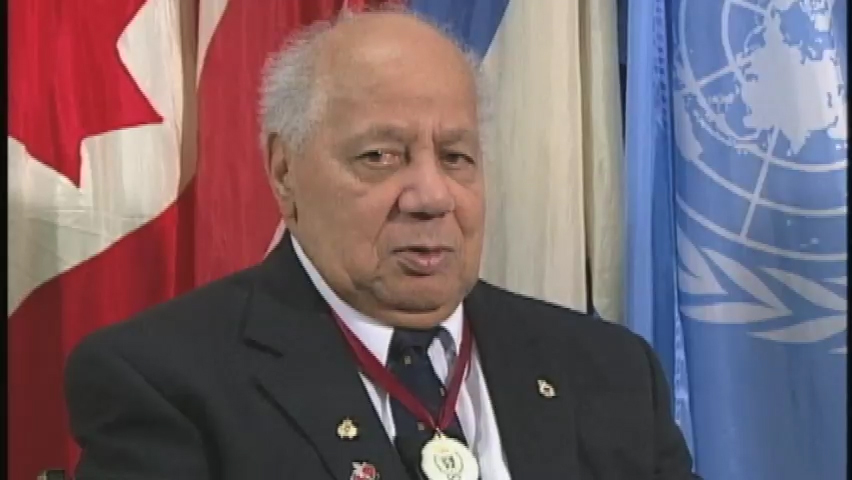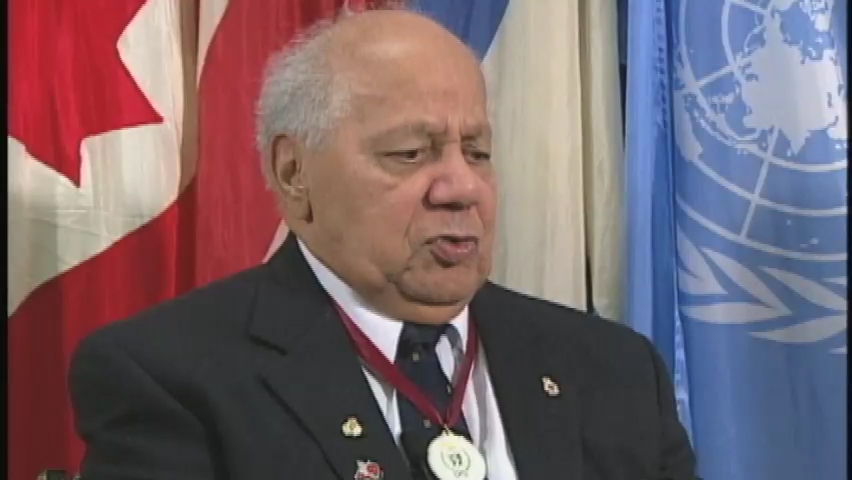Tanks in Italy
Heroes Remember
Tanks in Italy
Transcript
Interviewer: Tell me, how would you characterize
Italy as tank country? Would you consider it to
be good country for a tank regiment operation?
No.
Interviewer: Why is that?
It was always one hill up and one hill down.
Next hill. It was always very defensive.
Easy for the Germans to defend
because they always had the upper hand.
They had the higher ground
and could look down.
Interviewer: And every river crossing was contested?
Yeah.
Interviewer: When you got to the Po River
Valley area and you looked out on the
Lombardi plane position, that must have
looked like tank country to you.
It would be flatter, would it not?
Yeah, it would be flatter, but we knew from
the news that it had been flooded and
therefore the tanks couldn't move
very well in mud. And we held,
we were up there for,
well I said till the 24th of February.
The 24th of February, they pulled us
out and sent us to Leghorn and then
from there to Marseilles.
And from Marseilles, we went up to Menai,
which was on the border between
Belgium and France.
A-Squadron did a shoot at Hogwall Forest
and then we moved up from
there to Nijmegen and Nykirke and did
the square there at the end of the war.
Nijmegen, Nykirke, Barnesville.
Interviewer: Tell me, just before you
leave Italy, and we'll deal with this other,
the move into Northwest Europe,
when Rome fell on June 5th.
Of course that would be considered to
be a great victory for the Allies in Italy.
Mussolini, by that time, had been gone
a month and a half.
The situation was looking very positive.
The very next day was D-Day Invasion,
Northwest Europe.
Interviewer: How would you characterize what
happened after D-Day to what happened before?
The only change it made to us was the
fact that reinforcements were hard to get.
And many of the people, the wounded that
were slated to go back to Canada, back
home, the third time wounded you went back,
even that was cancelled.
They had to return to their unit as
soon as they were able.
That's where Lady Aster called us
the "D-Day Dodgers".
Interviewer: What was your reaction
when you first heard that?
Well, we thought it was a nice title.
Why not use it!
Description
Mr. Dowie describes Italy through the eyes of a tank driver and the impact of D-Day on the Italian Campaign. They were called D-Day Dodgers.
Vernon Dowie
Mr. Dowie was born in Montreal on August 9, 1920. His father was from Jamaica and was a medical doctor who trained in Cambridge, England. His father did not have a medical licence in Canada and thus worked at a variety of jobs including painting and as a railway porter. Mr. Dowie joined the Three Rivers Regiment in August 1940 and was part of the 1st Canadian Armoured Brigade. He trained in England and served in Italy, Sicily, and Holland. He is still involved with the Three Rivers Regiment.
Meta Data
- Medium:
- Video
- Owner:
- Veterans Affairs Canada
- Duration:
- 03:02
- Person Interviewed:
- Vernon Dowie
- War, Conflict or Mission:
- Second World War
- Location/Theatre:
- Italy
- Battle/Campaign:
- Italian
- Branch:
- Army
- Units/Ship:
- Three Rivers Regiment
- Occupation:
- Tank Driver
Related Videos
- Date modified:



